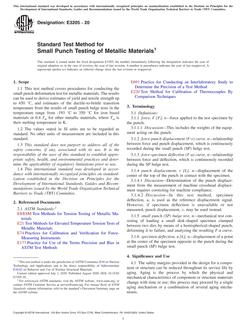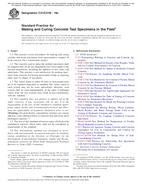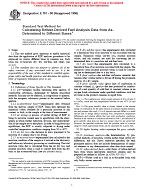1.1 This guide specifies general requirements for a body to follow if it is to be recognized at a national or international level as competent and reliable in assessing and subsequently accrediting certification bodies or registration bodies. Conformity to the requirements of this guide will promote equivalence of national systems and facilitate agreements on mutual recognition of accreditations between such bodies.
1.2 The primary objective of this guide is to describe accreditation as providing, by means of assessment and subsequent surveillance, an assurance that the market can rely on certificates issued by the acredited bodies. However, organizations other than accreditation bodies, concerned with recognition of competence, also may use it by replacing accreditation by recognition
1.3 In some countries, bodies which verify conformity of products, processes, services, or systems to specified standards are called certification bodies, in other countries registration bodies, and in still others assessment bodies. For ease of understanding, this guide always refers to such bodies as bodies. This should not be understood to be limiting, as this guide also may be applicable to the assessment and acccreditation of conformity assessment bodies other than certification or registration bodies, such as inspection bodies.
Note 1–It is recognized that agreements on mutual recognition of accreditations aiming at the removal of barriers to cross-border trade may have to cover other aspects not explicitly specified in these general requirements, such as the exhcange of staff or training programs. In particular, with a view to create confidence and harmonize the interpretation and implementation of standards, each accreditation body should encourage technical cooperation and exchange of experience among bodies accredited by it, and it should be prepared to exchange information or accreditation procedures and practices with other accreditation bodies. Certification and certification/registration body standards often cntain nonspecific requirements, such as “staff shall be competent”. Mutual recognition of accreditation requires harmonization of interpretation of such clauses.
Product Details
- Published:
- 10/10/1997
- Number of Pages:
- 7
- File Size:
- 1 file , 88 KB


